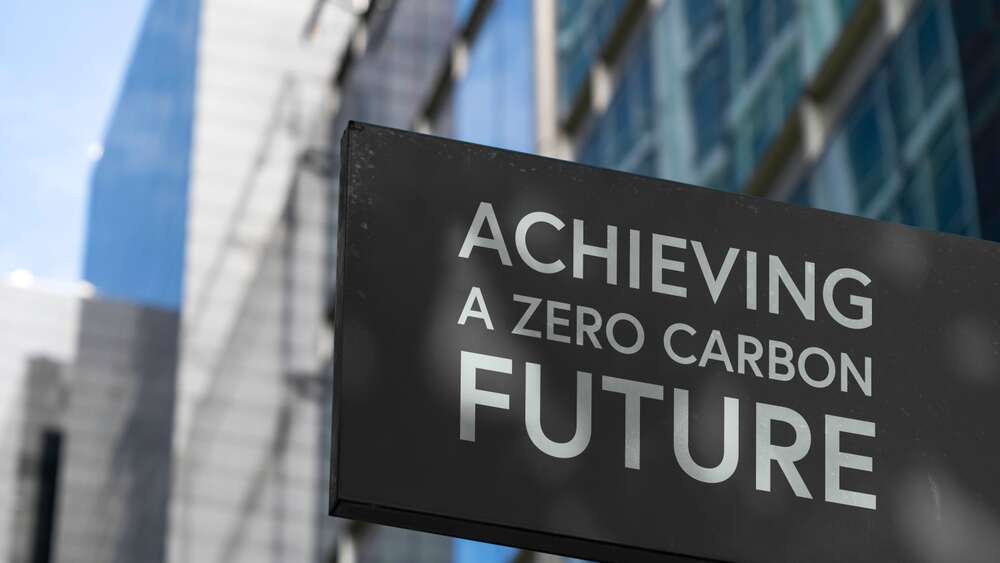

- Economic losses from climate-related disasters reached $270bn globally last year.
- The World Bank has estimated climate change could lead to more than 216 million people internally migrating by 2050.
- London-based security market intelligence group Dragonfly argues that risk thinking should be integrated within an organisation’s broader corporate climate strategy.
Economic losses are soaring globally due to greater climate variability and more frequent extreme weather events. But it is not just the direct consequences of climate change that impact the bottom line. The geopolitical and wider security implications of climate change are costly – and potentially profitability-threatening – problems for businesses over the coming decades.
During a webinar looking at the geopolitical and security implications of climate change last week, analysts from London-based geopolitical intelligence service Dragonfly, speaking under Chatham House Rule, emphasised this is not a far-off threat. Rather, the direct impacts of climate change are already affecting businesses on a routine basis, from unplanned and operational downtime to rising insurance premiums.
“Over the past half a century, every decade has seen more economic losses due to natural disasters than the decade that preceded it,” a spokesperson from Dragonfly told Capital Monitor.
Economic losses from climate-related disasters such as floods, droughts and heat waves have soared. Last year alone, analysts said, global losses due to natural disasters totalled approximately $270bn, of which roughly 55% are not insured.
Climate-related risks and the damages they bring are expected to grow in frequency and severity with every incremental rise in global temperatures.
“It’s not just the direct consequences of climate change that will impact the bottom line,” the spokesperson said. The geopolitical and wider security implications of climate change will create costly and profitability-threatening problems for businesses.
Dragonfly highlighted three areas of concern. First, climate change will amplify conflict and instability-related risks. Second, the cascading impacts of climate change will probably weaken global resilience to be able to cope with future shocks. And third, geopolitical tensions are likely to grow as governments struggle to reach a consensus over how best to reduce greenhouse gas emissions.
The threat of terrorism
At a national level, there are several pathways through which climate-related risks can affect conflict instability dynamics, both within and between countries. Worthy of mention is the threat posed by 'violent non-state actors'.
Pressures created by climate change provide opportunities for such groups as international terrorist organisations and organised criminal groups to both grow and pursue their objectives.
More challenging physical conditions brought about by climate change will probably make it harder for a country’s security forces. They will increasingly be distracted to respond to disasters elsewhere which will give these groups greater freedom of manoeuvre. Livelihood pressures brought about by climate change will act as a clarion call for these armed groups.
Last year, almost 30 million people were internally displaced by weather-related hazards. This is more than the total number of people displaced by conflicts. The World Bank has estimated climate change could lead more than 216 million people to internally migrate (move within their own country) by 2050.
Climate change is already making some natural resources scarcer. Speaking specifically of water, the gap between water demand and supply globally could reach 40% by 2030, according to the Global Commission on the Global Economics of Water.
“Some groups are likely to increasingly incorporate environmental issues into their core narratives as a way of growing their appeal,” the Dragonfly spokesperson said, pointing to the Salafi-jihadist Islamist insurgent group Al Shabaab in Somalia.
More broadly, the spokesperson concluded, growing frustration in the Global South with the perceived failure of developed nations to pay for the loss and damages that they have helped to create is likely to contribute towards anti-Western narratives.
Disruptions to supply chains
This makes the threat to corporates significant. The analysts pointed out that the global interconnectivity and complexity of the climate system amplify the ability of localised shocks to cause major cascading disruptions across multiple regions.
Dragonfly analysts on the webinar highlighted the potential to impact food and energy production, disrupt supply chains, create stranded assets, and reduce the readiness of governments and their armed forces to be able to cope with crises.
Take China, for example, which is struggling with the effects of a multi-year drought. The event was likely to cause disruptions to water-intensive critical infrastructure and industries. This would lead to a reduction or interruption to power generation extractive industries, agricultural production and manufacturing, as well as reducing the capacity of water transport networks within the country.
But problems would go further than that. Shortages of water would contribute towards labour shortages and scarcity of certain goods within China, as well as amplifying local social insecurities and social grievances over the availability and affordability of food energy.
There is also likely to be cascading fallout that would be felt beyond the country’s borders. There would likely be international supply chain disruptions for food critical resources, components for key technologies and manufactured goods.
The net impact could be increased levels of protectionism, competition to secure access to resources and additional costs of living pressures that could translate into civil unrest or political instability in certain contexts.
The message for corporate leaders was that risk thinking should be integrated within an organisation’s broader corporate climate strategy.
“The earlier that companies including in especially risk insecurity things, start planning and adapting, I think it will be much easier to tackle this task,” the Dragonfly spokesperson concluded.
Dragonfly requested that for security reasons no analyst be identified by name.
[Read more: Energy transition and security: Complementary or conflicting?]





